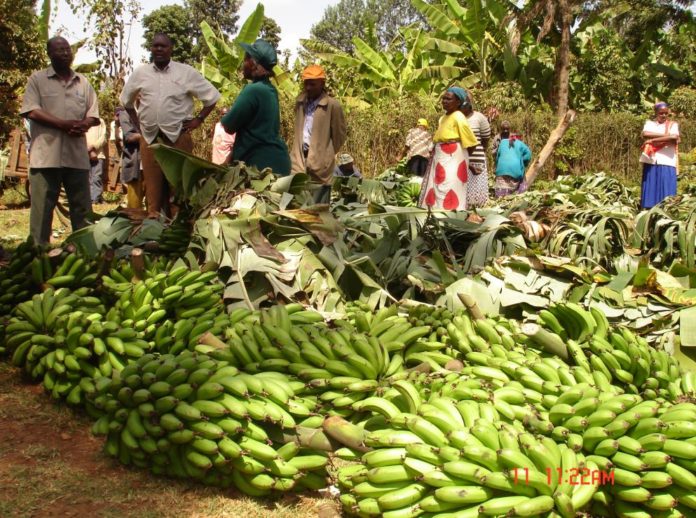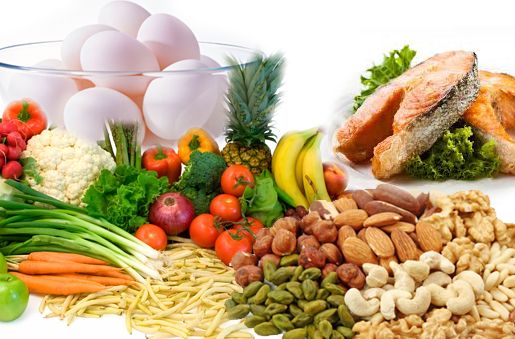Dr. Owusu Afriyie Akoto, Minister for Food and Agriculture, has reiterated that there is no food shortage in Ghana.
Agric Minister commends Zoomlion for its readiness to supply affordable organic fertilisers to farmers.
The Minister of Food and Agriculture, Dr. Afriyie Owusu Akoto, has highly commended Zoomlion Ghana Limited (ZGL) for its readiness to supply organic fertlisers at affordable prices to Ghanaian farmers in the midst of the global shortage of inorganic fertilisers.
The agricultural sector is the prolific economic sector for the youth to thrive – Siaw Agyepong.
The Chief Executive Officer of Jospong Group of Companies, Dr. Joseph Siaw Agyepong has urged the youth to venture into agriculture as the best economic sector at this crucial time.
Postharvest food losses posed a serious threat to food security.
The post-harvest loss (PHL) of food is a serious cause for concern worldwide, particularly in Africa. Globally, approximately 1,3 billion tons of food produced for human consumption were lost every year after harvesting.
VEPEAG and GAVEX partnered to promote and strengthen the horticulture sector.
Two leading institutions in Ghana’s fruit and vegetable sector have joined forces to increase the production and supply of quality fruits and vegetables and to boost exports.
Government tasks banks to support farmers.
The Ministry for Food and Agriculture (MoFA) has charged commercial banks in the country to contribute meaningfully to agriculture by making available credit facilities to farmers.
Organic fertilizer producers join forces to support the government.
To help bridge the shortage of fertiliser in the country caused by the ongoing war between Russia and Ukraine, local organic fertilizer producers have come together to form an association to scale up the production of fertilizers to complement the government’s efforts.
Marwako dismisses FDA investigation findings and calls for an independent probe.
The Public Relations Officer for Marwako Fast Foods has challenged the damning findings by the Food and Drugs Authority (FDA) in the wake of the alleged food poisoning recorded at some of the eatery’s branches.
Patronise IRECOP’s organic fertilizer to avert fertilizer shortage in Ghana – Agric Minister calls on Farmers
The Minister for Food and Agriculture, Dr. Owusu Afriyie Akoto has proposed to Ghanaian farmers to adopt Zoomlion’s Integrated Recycling and Compost Plants’ (IRECOP) locally produced organic compost for their farms to boost crop yields in Ghana.
He lamented the acute shortage of fertilizer in the sub-region due to the Russia and Ukraine fight.
He said as the chairman of the ECOWAS agric ministers committee, the ministers in the sub-region have been reporting on fertilizer shortage for the past two consecutive meetings likewise Ghana.
Dr. Owusu Akoto said based on this shortage, government is quick to adopt the organic fertilizer manufactured and supplied by indigenous Ghanaian companies to salvage the situation.
According to the Minister, his proposal is not peculiar to Ghana but the entire sub-region since the African market is not doing bad in the production and supply of organic fertilizer made in the form of compost, and urged ECOWAS governments to consider subsidising organic fertilizer for farmers to increase organic food growth against the inorganic food supplies in Africa.
He advise regional, municipal and district agriculture directors and staff to intensify farmer education to focus on the locally manufactured organic fertilizers to increase their produce for more harvest and incomes.
The Food and Agriculture Minister said in furtherance to the government’s desire to encourage local fertilizer usage by the farmers, eighteen local organic fertilizer producers and suppliers have been identified, applied and the government is currently working on approving them to produce and supply more organic fertilizer to farmers under a subsidized pricing scheme.
The Hon. Minister revealed this when he was interacting with the farmers and the heads of department at the Regional Coordinating Council at Goaso during his tour to the farms and the farmer groups in the Ahafo Region on Monday.
He visited the Zoomlion recycling and compost plant popularly known as IRECOP in Goaso which is about 80 percent complete to abreast himself with the seriousness of local fertilizer manufacturers, the Nkaseim Rice Fields and the farmer groups, ginger growers women group and the Duayaw Nkwanta Medium Prisons Farms among others.
At the IRECOP, the Executive Director of the Environment and Sanitation Processing Plants, of the Jospong Group of Companies, Mr. Haidar told the Minister that about 15 million USD plant will be fully be operationalized in 360 days to receive waste and process it into compost, and recycle the plastics waste as well.
He said the work is assiduously ongoing in all 16 regions of the IRECOP’s replication initiative by Zoomlion Ghana Limited.
At Duayaw Nkwanta Medium Prison, the Minister, pointed out that the reason for the high cost of food is due to transportation and world economic indicators including high cost of fertilizer.
The President of the Ahafo Traditional Area, Nana Akwasi Bosomprah I appealed to government to construct a warehouse to assist farmers in the region store their farm produce to avoid the farm produce rotten on the farms.
Nana Bosomprah, Goaso Omanhene, expressed the need for government to support farmers especially rice farmers in the area with combined harvesters to be able to harvest their produce for the Planting for Food and Jobs Programme (PFJ) to succeed.
Poor hygiene caused Marwako’s food poisoning – Food and Drugs Authority.
The Food and Drugs Authority (FDA) has disclosed the outcome of its investigation into the recent incidence of food poisoning at the East Legon branch of Marwako Foods.












